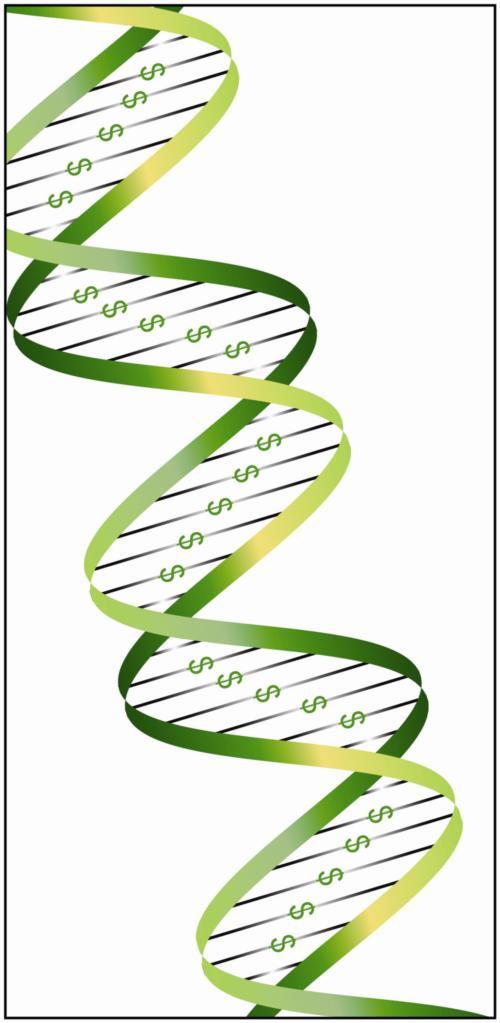
News
Summers Will Not Finish Semester of Teaching as Harvard Investigates Epstein Ties

News
Harvard College Students Report Favoring Divestment from Israel in HUA Survey

News
‘He Should Resign’: Harvard Undergrads Take Hard Line Against Summers Over Epstein Scandal

News
Harvard To Launch New Investigation Into Epstein’s Ties to Summers, Other University Affiliates

News
Harvard Students To Vote on Divestment From Israel in Inaugural HUA Election Survey
HMS Prof To Expand Genome Database
The billion-dollar plan would decode the DNA of 100,000 people

Currently, your personal sequence of genetic code costs the hefty sum of $350,000, but in as little as five years, you might be able to buy your own genome for just under $1,000.
Harvard Medical School professor George M. Church foresees a future in which the average individual can not only get his or her genetic code sequenced at an affordable cost, but also use this information to create a personal risk profile for common diseases.
As the head of the Personal Genome Project (PGP), Church plans to spend $1 billion to decode the DNA of 100,000 people in hopes of shedding light on the mysteries of the human genome.
“Genomics is a new idea,” said Church, a Harvard Ph.D. whose Web site features the letter he received when he failed out of Duke’s doctoral program in the 1970s. “Like the PC, it’s not obvious at first that anyone would want one. It’s like, ‘Hey, we’ve already got one genome, why do we need more?’”
Church hopes that with time, people will recognize the benefits of having their personal genome sequenced.
He adds that building trust within the community is key to the PGP’s success.
“Everybody has a fax machine, but no one wants to [give] the number out,” Church said. “There’s a lot of stuff people aren’t used to sharing, so you have to start with people who are really ready to do so.”
A GANG OF 10
While Church, an amiable man who speaks with the confidence of a visionary, says he might be able to get one million people signed up, so far he has just ten. One of whom is him.
The group, affectionately known as “the PGP-10,” has agreed to share their DNA sequences and medical records, and has already contributed blood, skin, and oral mucosa cells to the project.
Before providing tissue samples, the PGP-10 had to pass a series of exams assessing their interest, testing their knowledge of genomics and study protocol, and making sure that they understood the benefits and risks associated with their participation.
“I spent hours on the consent process,” said John D. Halamka, the Medical School’s chief information officer. “It was really a great dialogue.”
Halamka volunteered to participate in the PGP primarily due to his background combining medicine and technology.
“I have always been interested in being a guinea pig myself,” Halamka said. “I want to share the good and the bad, and hopefully society will learn from my experience.”
Venture capitalist Esther Dyson ’71, who is also a member of the PGP-10, cited the project as an opportunity to raise awareness about the importance of gene-sequencing.
“The point is to be role models,” said Dyson, a former Crimson staff member. “We want people to realize that this is not an inherently scary or insane thing to do.”
MORE HARM THAN GOOD?
Despite the PGP-10’s confidence in making their medical information publicly available, many people, including some medical ethicists, feel that releasing such information can be “scary” or “insane.”
One concern that many express is fear that insurance companies could use negative information gleaned from the genomes to deny health insurance to certain individuals.
“The problem is not with people’s genomes. The problem is how society decides what we pay for and what we don’t,” Dyson said. “Human life may be precious, but it is not infinitely precious.”
Dyson added that the PGP will actually prompt society to figure out how the insurance system works and how it should work if genetic profiles are available.
Rosalynn D. Gill, another member of the PGP-10, said that releasing medical information should ultimately be a personal choice and should never be mandatory, but that she chose to participate in the program because the benefits of having a personal genome would “outweigh the potential risks by far.”
Gill’s sentiments were echoed by Daniel Wikler, an ethicist at the Harvard School of Public Health, who said that it is a personal decision about how much information should be released.
He added that the question of whether the PGP is ethical rests to a significant extent on whether the individual was fully aware of the possible implications of their decision to make their genetic information public.
COLLABORATORS NOT OBJECTS
The PGP-10’s role in the research is not limited to donating tissue samples collected by a simple swabbing. Gill said that she and the other members participated in several lengthy discussion forums including how to interpret and communicate the results.
The PGP is different from most genomic research, according to Church, in that the researchers seek to establish more personal interactions with the participants.
“We look at these people as collaborators and not objects of study,” Church said. “We want to have a dialogue with them just as they have a dialogue with their physicians.”
Although the PGP is still in its early stages, Church is very confident that expansion will be successful. He has received a large number of private commitments, including donations from organizations like Google and the Broad Institute.
“It will be ridiculously easy to get 100,000 people, maybe even a million!” Church said. “It’s like computers. There’s a learning curve, but people will become educated and hopefully we will be part of that process.”
—Staff writer June Q. Wu can be reached at junewu@fas.harvard.edu.
Want to keep up with breaking news? Subscribe to our email newsletter.
